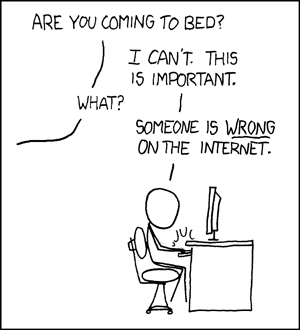JPINFV
Gadfly
- 12,681
- 197
- 63
So after another perfectly good conversation got shut down for being too tangential, I thought we could use a thread like the Directionless thread to continue said conversations. If this was Thanksgiving dinner, this thread would be the adult table (hence the name), where mature topics can be discussed.
Rules:
1. No ad hominem attacks.

1.2: Attacking logical fallacies is not an ad hominem attack. A calling a straw man argument a straw man argument is a valid plan of attack.
2. On topic posting includes things like economics, social issues, international issues, etc. Cat pictures are allowed only on Caturday, or when pertinent during a discussion.
3. Spelling and grammar matter (and we don't need any more of the strippers, JFK and Stalin).
4. Remember, at the end of the day, everyone has their own background that they see life through, and...

Rules:
1. No ad hominem attacks.

1.2: Attacking logical fallacies is not an ad hominem attack. A calling a straw man argument a straw man argument is a valid plan of attack.
2. On topic posting includes things like economics, social issues, international issues, etc. Cat pictures are allowed only on Caturday, or when pertinent during a discussion.
3. Spelling and grammar matter (and we don't need any more of the strippers, JFK and Stalin).
4. Remember, at the end of the day, everyone has their own background that they see life through, and...

